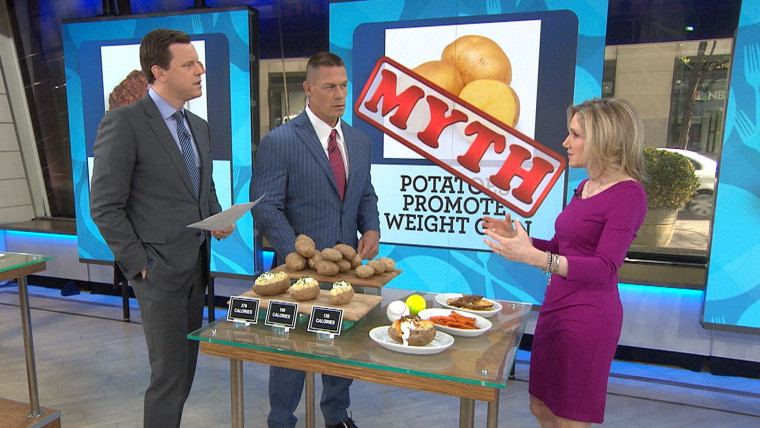Keto Diet for Non Red Meat Eaters
With healthy eating advice changing so often, many people are left wondering what foods are really best for their bodies. Check out these most recent food myth-busters to learn why you need to read beyond the headlines when it comes to making smart food choices.
Red meat is bad for your heart. Truth or myth?
MYTH! The bad rap for red meat comes from huge portions and fatty cuts of beef that are not only popular, but demanded by many consumers. Restaurant portions have grown so big that a standard serving — about a quarter of a pound (4 ounces, the size of a deck of cards or computer mouse) — looks skimpy by comparison.

Yet with more than 25 cuts of lean and extra lean beef containing much lower amounts of artery-clogging saturated fat, it's easy to make a healthier choice. Look for "sirloin" and "round" on the label, and mixes of at least 90/10 percent (lean/fat) for ground beef. Do your own visual test to limit red meat with the most saturated fat — if you can see lots of fat in the meat and a fatty band around the outside, skip it, except for special occasions.
RELATED: Will eating break make you gain weight? Food myths debunked
A 4-ounce serving of lean flank steak contains about 30 grams of complete protein, 9 grams of fat, 4 grams of saturated fat, and 220 calories, while the same serving of fat-marbled porterhouse steak has similar protein, but three times more fat and saturated fat, and 340 calories. And a typical serving of porterhouse steak is at least a half pound (8 ounces) containing 680 calories, 50 grams of fat and 20 grams of saturated fat — roughly your total fat and saturated fat for the whole day.

Another healthy option can be 100 percent grass-fed beef, with a healthier fat profile — lower in saturated fat compared to grain-fed beef — because of what the cow is fed. It's more expensive, because the cows are fed grass (the natural choice for cows) and not grain. While pricey, grass-fed beef is super-flavorful so smaller portions are more satisfying. As with all red meat, stick with the leaner cuts for optimal health benefits.
RELATED: Allergy myths busted: Guess what you didn't know about gluten?
Choosing organic red meat doesn't automatically guarantee a healthier choice. It means that the cow was fed organic grain, but not necessarily grass (unless it's labeled). So unless you choose a lean cut, you'll still be getting the same amount of saturated fat as non-organic as a conventional cut.
While you can also meet your protein needs with fish, poultry, and plant sources (like soy and lentils) you can choose to include red meat as part of a healthy diet IF you make smart choices of cut and portion size.
Potatoes promote weight gain. Truth or myth?
MYTH! From chips to baked "loaded" versions, potatoes are the perfect carrier for fat and salt in many delicious forms. But it might surprise you to learn that a potato — white or sweet — can be a nutrient-rich, calorie-controlled vegetable when you make a smart choice.
RELATED: Eat chips?! 3 myths about food and healthy skin get busted
Size matters when it comes to any potato. Even a plain baked potato can have a meal's worth of calories when it's supersized to what's seen in many restaurants and sold as "restaurant size" in supermarkets. A "medium" baked potato (that's still pretty hefty — at around 7 ounces and a 3 inch diameter) has about 160 calories and is packed with nutrients. With 4 grams of fiber (about 20 percent of your daily count), 4 grams of protein, half of your vitamin C for the day, 25 percent of your potassium, a third of your vitamin B6, and nearly 10 percent of your iron, it's a nutritional powerhouse. And a serving size can also be half of a potato, for half the calories.
While both white and sweet potatoes are nutrient-rich, it's a mistake to think that frying sweet potatoes makes them a healthier option or lower in calories than fried white potatoes. Try "baked" white or sweet potato "fries," or adding lower calorie toppings to a baked potato, including salsa, chives, or a tablespoon of reduced fat sour cream, Greek yogurt, or cheddar cheese.
Potatoes can be part of a healthy diet, including one for weight loss. Make potatoes a side dish composing about one-fourth of your whole plate. Whether you bake, boil, or microwave, keep the skin on to optimize the nutrients and fiber.
Drinking red wine is good for your heart. Truth or myth?
MYTH! When it comes to any potential health benefits of alcohol — including wine — portion size and frequency matter most. Only when national guidelines are followed for wine or alcohol consumption, are any positive health associations found. Remember, the size of a drink is defined by ounces, not the size of the glass. One drink is 5 ounces of wine, 12 ounces of beer, and 1.5 ounces hard spirits. The recommended limit is up to two drinks daily for men, and up to one for women. Higher consumption is often associated with health risks.
Evidence for the health benefits of wine are found by looking for links — or associations — about wine consumption and health. Studies are most often self-reported consumption obtained from surveys of thousands of people, over many years. And these associations are positive for the most part, although the reasons remain unknown. One theory is that because red grapes contain a compound called "resveratrol" in the skins, this component might be related to potential positive health effects. Perhaps other antioxidants found in grapes contribute as well. But these are not cause-and-effect results, and many other factors might contribute.
RELATED: Red wine and chocolate for better health? Maybe not
In fact, other data show that alcohol of any type in moderation is associated with better health, suggesting that somehow moderate alcohol intake alone has a positive health impact.
Red wine is not a health food, so if you don't already consume wine or alcohol, don't add it as a potential health booster. And if you're not a wine drinker and prefer beer or white wine, it's unclear whether there is any additional health advantage. If you enjoy red wine, pay attention to the recommended serving size and daily limit to optimize any health benefits.
Madelyn Fernstrom, Ph.D is NBC News Health and Nutrition Editor.
Keto Diet for Non Red Meat Eaters
Source: https://www.today.com/health/3-food-myths-stop-believing-right-now-t91466